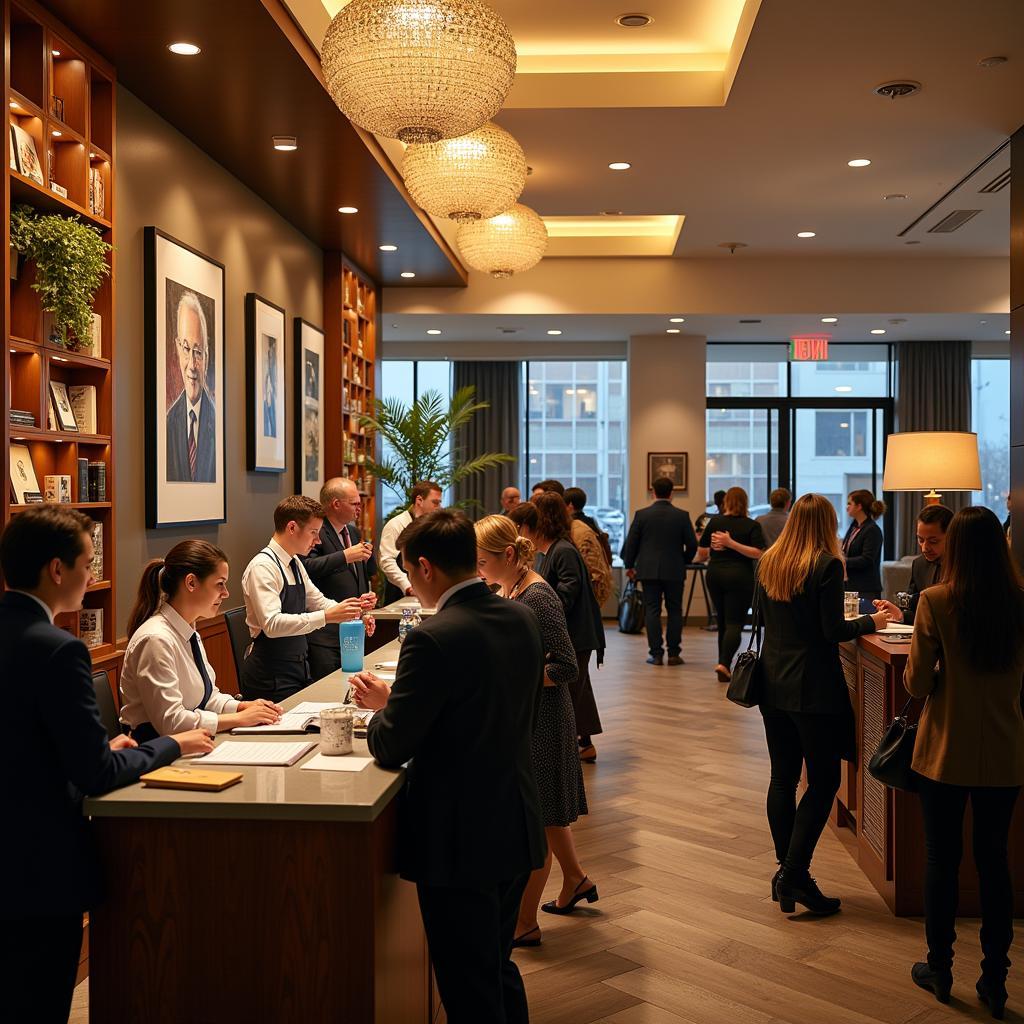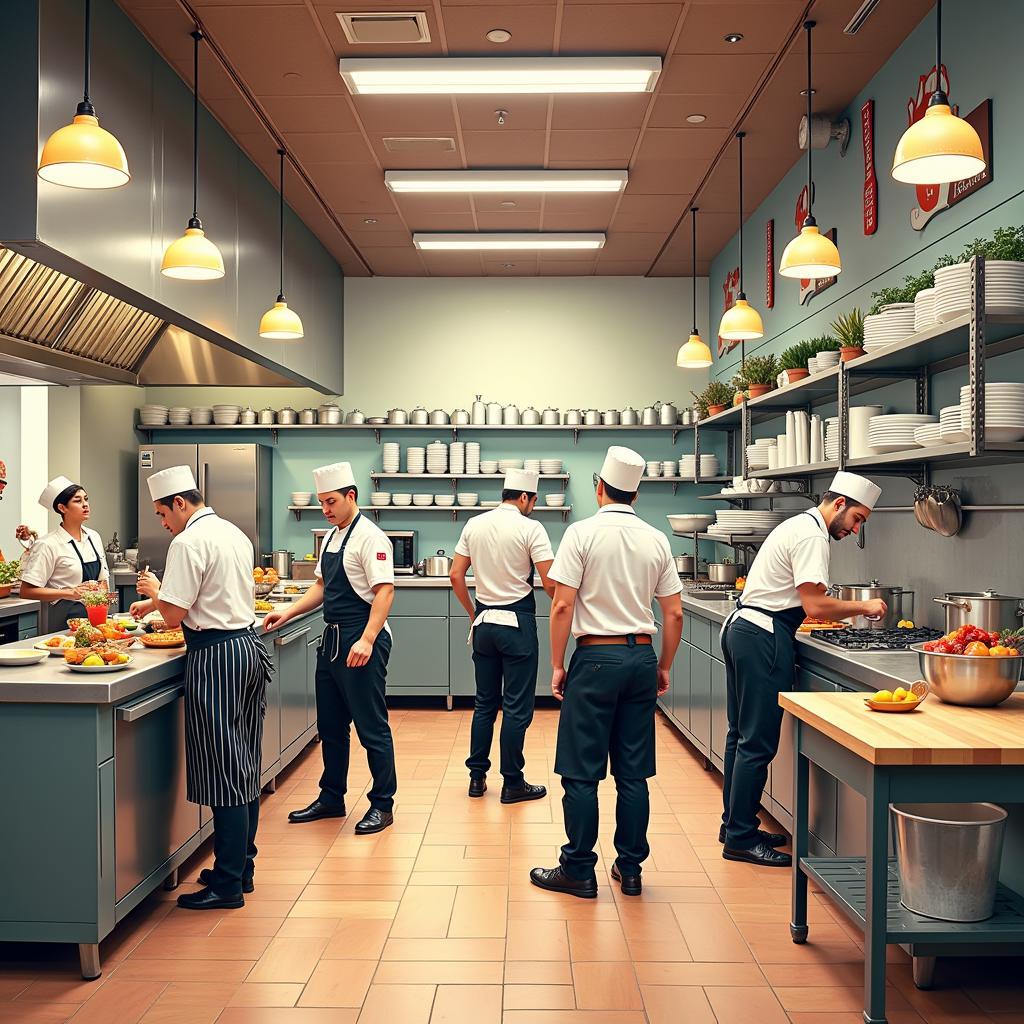The hospitality industry, like any other, thrives on its own unique language. From booking a room to enjoying a five-star meal, countless acronyms and abbreviations are used daily. Understanding these Hospitality Acronyms can not only impress your fellow colleagues but also help you navigate the ins and outs of this exciting field. Whether you’re a seasoned professional or just starting your journey, this guide will equip you with the knowledge to decipher the alphabet soup of hospitality jargon.
Common Hospitality Acronyms Used in Hotels
Let’s start with some of the most common hospitality acronyms you’ll encounter in the hotel world:
- ADR (Average Daily Rate): This essential metric calculates the average revenue earned for each occupied room per day.
- BAR (Best Available Rate): This is the lowest available rate for a room on a given date.
- CRS (Central Reservation System): The heart of hotel bookings, the CRS manages all reservations made directly with the hotel.
- GDS (Global Distribution System): Think of this as a giant online marketplace connecting travel agents and other distributors with hotels worldwide.
- OTA (Online Travel Agency): Familiar names like Expedia and Booking.com fall under this category, acting as third-party booking platforms.
- RevPAR (Revenue Per Available Room): A key performance indicator (KPI), RevPAR measures a hotel’s ability to fill its rooms at an average rate.
 Modern Hotel Front Desk
Modern Hotel Front Desk
Navigating the F&B Side of Hospitality Acronyms
The culinary world within hospitality has its own set of abbreviations, particularly in Food and Beverage (F&B):
- POS (Point of Sale): This system is the backbone of any restaurant or bar, processing orders and payments.
- FIFO (First In, First Out): This inventory method ensures that the oldest food items are used first, crucial for maintaining freshness.
- HACCP (Hazard Analysis and Critical Control Points): A systematic approach to identifying and controlling food safety hazards.
- QSR (Quick Service Restaurant): Fast food chains and casual dining spots where speed and efficiency are paramount.
- FSR (Full-Service Restaurant): Restaurants offering a complete dining experience with servers and a more formal atmosphere.
 Bustling Restaurant Kitchen
Bustling Restaurant Kitchen
Decoding Hospitality Acronyms Used in Events
Planning and executing events requires a whole other level of coordination, often relying on specific industry abbreviations:
- MICE (Meetings, Incentives, Conferences, and Exhibitions): This sector focuses on large-scale events that drive business and tourism.
- RFP (Request for Proposal): Event planners use RFPs to solicit bids from venues and vendors.
- CVB (Convention and Visitors Bureau): These organizations promote their destinations and attract events and tourism.
- DMC (Destination Management Company): Local experts who provide comprehensive event planning and logistical support.
Why Learning Hospitality Acronyms Matters
Beyond simply understanding the language, mastering these acronyms has several benefits:
- Improved Communication: Speak the same language as your colleagues and clients, avoiding misinterpretations.
- Increased Efficiency: Acronyms provide a shortcut for conveying information quickly and effectively.
- Enhanced Professionalism: Demonstrate your industry knowledge and credibility by using the correct terminology.
Frequently Asked Questions about Hospitality Acronyms:
- What does GOP stand for in the hotel industry? GOP stands for Gross Operating Profit, a key profitability metric.
- What is the difference between a Resort Fee and an Incidental Fee? A Resort Fee typically covers amenities, while an Incidental Fee is charged for specific services or damages.
Need Further Assistance?
We hope this guide to hospitality acronyms has been helpful. For any other questions or assistance planning your next stay, contact us at:
Phone Number: 02437655121
Email: [email protected]
Address: Số 298 Đ. Cầu Diễn, Minh Khai, Bắc Từ Liêm, Hà Nội, Việt Nam
Our dedicated team is available 24/7 to assist you.